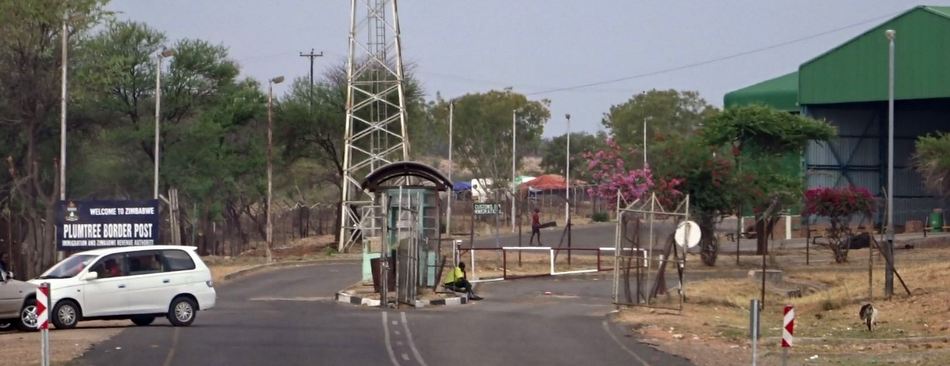By Lizwe Sebatha
WITH no formal employment, Bekithemba Ncube (not his real name) says smuggling groceries and other goods from neighbouring Botswana for resale in Bulawayo helps him put food on the table for his family.
The financial benefits from the illegal trade outweigh the risks of arrests and jail time, he argues.
“We travel mostly at night to evade arrest,” Ncube who runs a small grocery shop in Bulawayo’s busy 5th Avenue agricultural market, says.
A number of grocery shops, mostly selling cheap smuggled goods, have literally ‘taken’ over trading spaces at Bulawayo’s agricultural market.
“If I am not travelling to Botswana, my links provide the groceries from the neighbouring country via illegal entry points, paying bribes along the way where possible,” Ncube says.
“We resort to smuggling because of the high duty taxes and corruption at the immigration points. And besides, borders are closed.”
According to police, the smuggling of goods via illegal entry points in rural Plumtree is also rampant citing the recent arrests of smugglers.
The vice is further fuelled by the closure of land borders, except for cargo transport and other authorized persons, as a Covid-19 preventive measure
All individuals arriving must quarantine for 14 days. If travellers present symptoms upon arrival, authorities are supposed to detain them until Covid-19 test results are known regardless of a pre-arrival negative test.
In May, Matabeleland South police confiscated an assortment of smuggled goods in Mbimba and Madlambuzi in Plumtree.
“On 16 May, police in Madlambuzi intercepted a grey Toyota D4D twin cab FF20 HP GP wit trailer FH19PM GP laden with smuggled goods at Madlambuzi business centre and nabbed Mqondisi Dube, Reason Ncube and Butholezwe Mkwanazi for smuggling,” the Zimbabwe Republic Police (ZRP) says.
“Police also recovered an abandoned Toyota GD6 vehicle GIMM74 with trailer 002GIF GP at Mbimba business centre laden with smuggled goods.”
A month later in June, police revealed the arrest of three other suspects for smuggling goods into the country in Nxele, also in Plumtree.
“On 26 June, police in Plumtree arrested 3 suspects for smuggling and recovered 6×43 inch LED television sets, 26 Waxiba radios, 15 Bluetooth box speakers, 50litres of diesel and various clothing at Nxele illegal cross point,” the ZRP adds.
According to police, since June 7 a total of 30 387 people have been arrested in an operation titled “No To Cross Border Crimes” targeting criminals using undesignated exit and entry points.
Various state security organs are involved in joint border patrols code-named “Operation No to Cross Border Crimes” to curb the illegal border crossings by returning residents.
Home Affairs minister Kazembe Kazembe has said drones will be deployed at the borders to fight the vice
However, the practice continues to flourish under law enforcement watch.
Former Bulilima East legislator Norman Mpofu says the government is fighting a losing battle as long as poverty stalks citizens.
“There is a lot of smuggling in Plumtree. It is done all the way from Bambadzi in Bulilima all the way to Makorokoro in Mangwe. It even takes place near the official crossing points. In fact, it will be difficult to stop or control smuggling,” Mpofu said.
“Hungry and poor villagers cannot ignore the opportunity of using their homesteads to house smugglers for a fee to feed their families. Some also assist in carrying the goods across the borders. While those employed by the state get bribes for services villagers also make money by assisting smugglers.”
The national statistical agency, ZimStat said the food poverty line (FPL) as at June 2021 stood at $4,271.85. This means that the minimum needs basket cost that much per person in June 2021.
This represents an increase of 3.2 percent over the May 2021 figure of $4,139.10.
Mpofu also blamed policymakers for enacting laws that “that make it difficult for people to source commodities outside the country” hence fuelling smuggling.
“Those in power make it easy for themselves to go through the borders and source commodities which are shipped into the country while making it difficult for ordinary citizens to do the same. If one manages to go through the border Zimbabwe Revenue Authority (Zimra) officials make it difficult for one to bring in items from outside as conditions are prohibiting if not bribes.”
Bulawayo based commentator Reginald Shoko also admits that the government is fighting a losing battle as he called on policymakers to address challenges facing local industry.
“Fighting smuggling is a good way of doing things but is not a panacea of solving the problems that are facing the local industry and consumers which then forces the consumer to lean more on smuggled goods,” Shoko says.
“Unfortunately people have been forced to smuggle because of the high cost of goods locally. What we need to do is to look at internal devaluation because some of the prices result from the high exchange rate and also purely greediness.
“We need to look at the build-up of prices from electricity, labour cost and all other cost drivers that affect the final pricing structure in Zimbabwe so that the prices are competitive.”
Estimates by government and other independent agencies show that the illegal smuggling of goods costs the Treasury nearly US$1billion a year in unpaid customs duty.
Without any means of escaping the socio-economic crisis characterised by high unemployment, Ncube says the need to fend for his family motivates him to continue smuggling goods to make ends meet.
“If the employed are struggling to make ends meet, how do they expect us to survive? This is my meal ticket also,” Ncube says.

